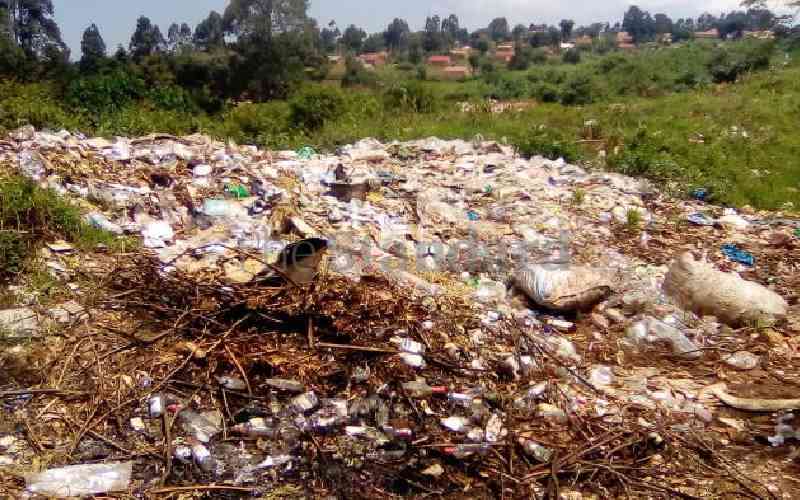It is a well-known historical fact that the Nandi lost much of their land through adverse dispossession.
From that unscrupulous inception ensued an unbroken sense of injury, injustice and a pervading sense of victimhood that endures to this day. When Governor Stephen Sang ran for office against former Cabinet Minister Henry Kosgey, his campaigns reflected the heightened social consciousness over economic injustice and victimhood.
Sang effectively used that to puncture Kosgey’s candidature by associating him with land problems facing the Nandi, Kosgey being a large landowner.
Kosgey was just 32 when he came into office. He had begun feathering his nest long before Governor Sang was born, acquiring prime property from departing settlers and consolidating diverse holdings from various quarters into a substantial conglomerate. Realising Kosgey’s Achilles heel was his large land holdings and inevitable murmurs that attend wealthy politicians, Sang made Kosgey the victim of his own success.
Months after he came to office, Sang vowed that he would go after ‘grabbed land’ in his county. This was to be known as the Second Nandi Hills Declaration, after the first one of July 27, 1969 which got then Tinderet MP Jean-Marie Seroney and his friend Joseph Mitei into deep trouble. Both declarations were about land and coming on the 50th anniversary of the first, it is yet evidence that the land question in Nandi remains overtly sensitive and still unresolved.
At stake is the tea industry. Much of the tea industry in Nandi began after the post-war boom in tea demand that saw the moneyed men of London form syndicates to acquire land and plant tea. At independence, some Europeans who chose to remain, like the Mayers of Nandi Hills, sold their holdings to fellow Europeans who consolidated them into substantial production zones.
The specific land which Sang and Kosgey are spatting about, Kibwari Tea Estate, once belonged to Graham Boswell and his wife Erica. In 1979, Boswell designated a portion of his land, some four acres, to build a cattle dip for the community, most of whom were squatters on his vast estate.
Boswell died in February 1988 and Erica sold Kibwari to a consortium led by Henry Kosgey in 1992. She retired to Limuru where she died in 1996. The new owners rescinded the portion that had been granted to the community as a cattle dip, choosing to plant tea over the land. This became a festering wound over the years and which formed the bulk of the presentation that the Nandi County Government made before the National Land Commission (NLC). The matter was settled in favour of the community but just before implementation, the matter went to court.
Why did the government react with such vigour against Sang? Other governors have done the same -- probably even worse -- demolishing prime property, sometimes in disregard of court orders.
In short, Sang’s move was viewed as having the potential to spiral out of control, leading to an invasion of the vast tea holdings, most of which are still in the hands of foreign multi-nationals.
Understanding the sensitivities of the tea sector which is a leading exchange earner, it could have had broader ramifications on the economy. Besides, Sang had earlier called for a review of the Kisumu-Nandi boundaries on the Nyando valley, an area that has seen sporadic often bloody inter-ethnic conflict.
The Keteng incident therefore provided the perfect excuse to silence him. But it could all be a band-aid solution as the wound continues to fester, and which, left untreated, may have serious social and political ramifications in future.
-The writer is a researcher. [email protected]?
 The Standard Group Plc is a
multi-media organization with investments in media platforms spanning newspaper
print operations, television, radio broadcasting, digital and online services. The
Standard Group is recognized as a leading multi-media house in Kenya with a key
influence in matters of national and international interest.
The Standard Group Plc is a
multi-media organization with investments in media platforms spanning newspaper
print operations, television, radio broadcasting, digital and online services. The
Standard Group is recognized as a leading multi-media house in Kenya with a key
influence in matters of national and international interest.
 The Standard Group Plc is a
multi-media organization with investments in media platforms spanning newspaper
print operations, television, radio broadcasting, digital and online services. The
Standard Group is recognized as a leading multi-media house in Kenya with a key
influence in matters of national and international interest.
The Standard Group Plc is a
multi-media organization with investments in media platforms spanning newspaper
print operations, television, radio broadcasting, digital and online services. The
Standard Group is recognized as a leading multi-media house in Kenya with a key
influence in matters of national and international interest.








